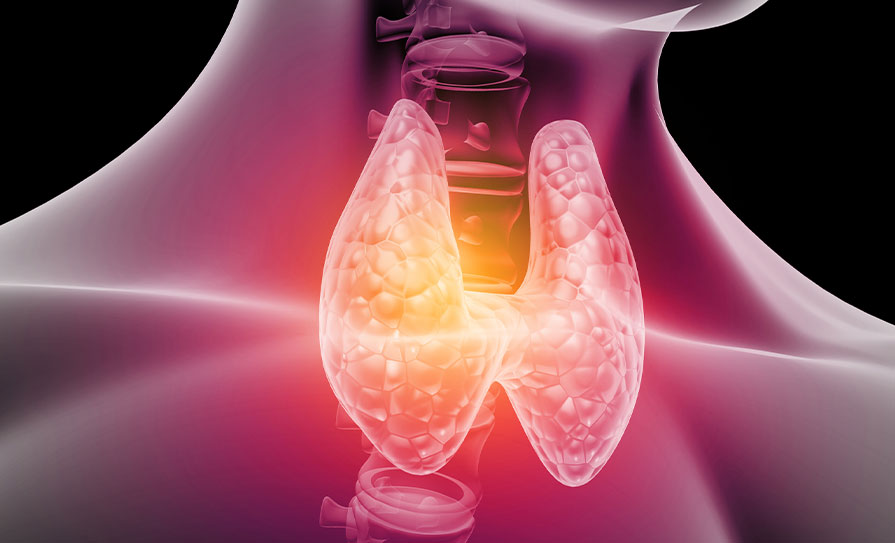
Severe Covid-19 disease affects thyroid function through a variety of mechanisms and can have a long lasting impact, according to a new study from Dr Ilaria Muller and colleagues from the University of Milan, Italy.
The study followed patients with thyroid dysfunction correlated to Covid-19 disease for one year, to better characterise such thyroid involvement and to follow its evolution over time. The hormone imbalance is usually mild but increases in severe cases of Covid-19. During moderate-to-severe Covid-19 disease the occurrence of thyroiditis (inflammation of the thyroid gland) plays an important role in thyroid dysfunction, in addition to other well-known mechanisms mainly acting on the hypothalamus-pituitary-thyroid axis.
Correct thyroid function is crucial to the human body’s metabolism, growth, and development. The thyroid gland generates extra hormones when the body needs more energy in particular situations, such as when it is growing, cold, or pregnant.
The study looked at more than 100 patients admitted to hospital with severe Covid-19, analysing their thyroid stimulating hormone (TSH) and other indicators. Thyroiditis occurred frequently in the Covid-19 patient population and the thyroid function, as well as inflammatory indicators, returned to normal in nearly all instances shortly after the end of their Covid-19 illness. However, after 12 months thyroiditis regions remained visible at thyroid ultrasound in half of the individuals, even if reduced in size. The thyroid uptake of technetium or iodine, an indicator of thyroid function, was still reduced in four-out-of-six individuals at nine months, although it had mostly recovered after 12 months. The long-term clinical consequences, if any, are unknown.
“There is a clear link between thyroid dysfunction and Covid-19 disease,” said Dr Muller. “Knowing that thyroid hormones correlate with the disease severity is important, and the fact that the thyroid gland seems directly involved in SARS-CoV-2 (Covid-19) viral infection needs to be taken into account.”
The study was presented during the 24th European Congress of Endocrinology, which was held on 21-24 May in Milan, Italy. The Congress brought over 4000 endocrinologists from more than 100 countries together. The Congress also marked the first European Hormone Day and the launch of the Milano Declaration, which aims to encourage national and European decision makers to better integrate endocrinology in European and national health policies.





Leave a Reply
You must be logged in to post a comment.